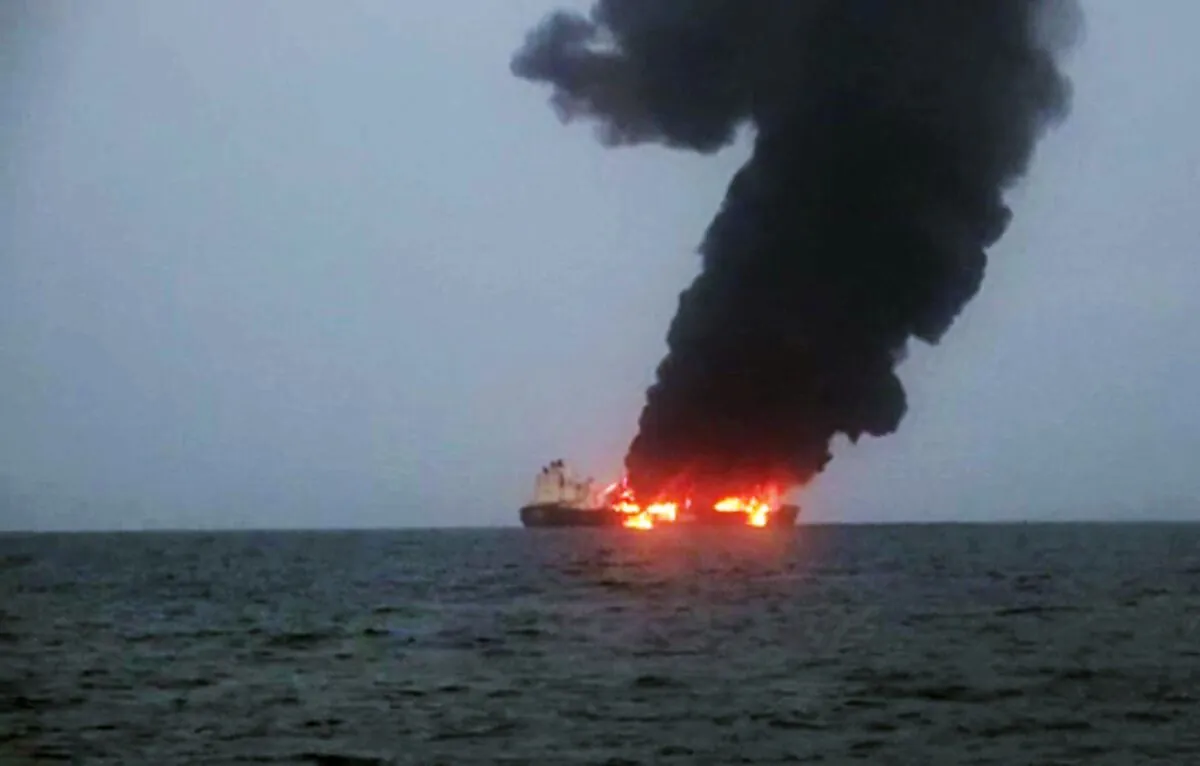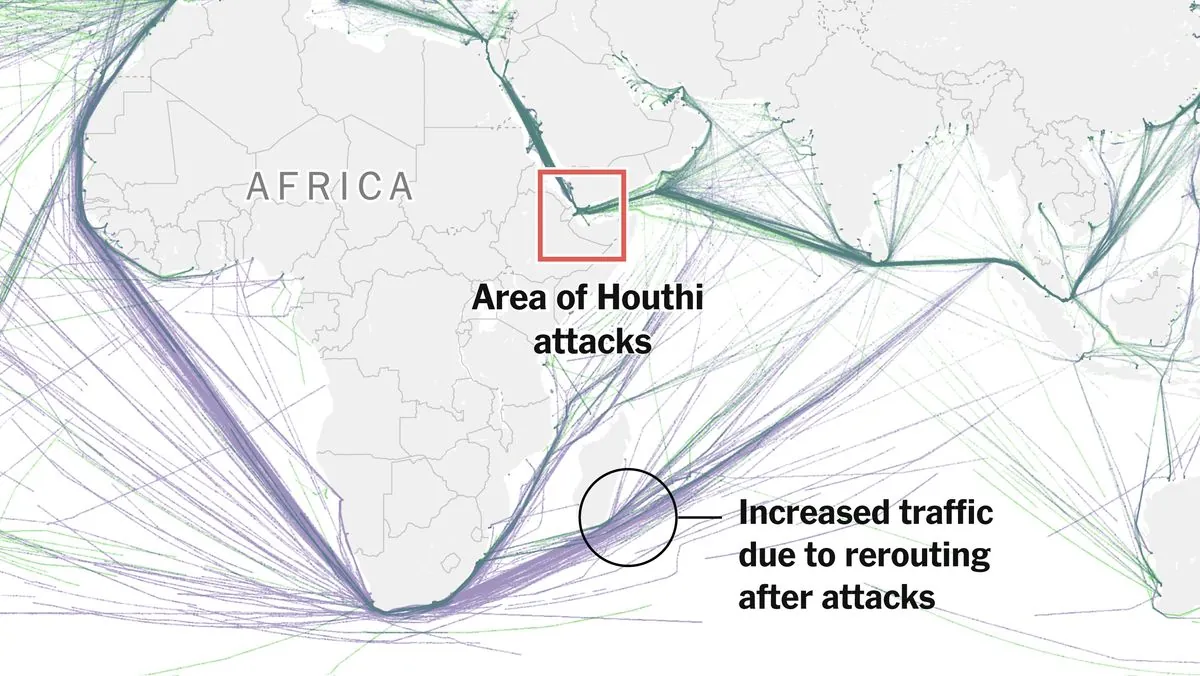Greek Tanker Ablaze in Red Sea After Houthi Attack, No Major Oil Leak Yet
A Greek-flagged tanker remains on fire in the Red Sea following a Houthi rebel attack. Despite multiple fires on deck, no significant oil leak has been reported, averting an immediate environmental crisis.

In a recent incident highlighting the ongoing tensions in the Red Sea region, a Greek-flagged tanker named Sounion has been set ablaze following an attack by Houthi rebels. The European Union's naval command, Operation Aspides, reports that while the vessel remains on fire, it has not yet resulted in a major oil leak, averting an immediate environmental catastrophe.
The attack on Sounion represents the most severe assault in recent weeks by the Houthi rebels, who have been targeting shipping in the Red Sea corridor. This ongoing campaign, which began in October 2023, has been linked to the Israel-Hamas conflict in Gaza. The attacks have significantly disrupted the estimated $1 trillion worth of trade that typically flows through this vital maritime route.

The Red Sea, a crucial waterway connecting Europe and Asia, is home to over 1,200 species of fish, with about 10% found nowhere else in the world. It also boasts more than 200 species of hard and soft corals, making it a unique and fragile ecosystem. The potential environmental impact of these attacks cannot be overstated, as an oil spill could devastate this rich marine biodiversity.
Images released by Operation Aspides show multiple fires burning on the Sounion's deck and bridge. The tanker, loaded with 150,000 tons (approximately 1 million barrels) of Iraqi crude oil, now poses both a navigational hazard and an environmental threat. The EU mission emphasized that these attacks not only jeopardize freedom of navigation but also endanger seafarers' lives and the region's ecosystem.
The U.S. State Department has also expressed concern about the ecological dangers posed to the Red Sea. The waterway, known for its warm and salty seawater, is a popular destination for scuba diving and snorkeling due to its clear waters and diverse marine life. Any significant oil spill could have long-lasting effects on this delicate environment.
The Houthi rebels, a Zaidi Shia Muslim movement that emerged in northern Yemen in the 1990s, have claimed responsibility for the attack. They justify their actions as retaliation against vessels they believe are linked to Israel, the United States, or the United Kingdom. However, many of the targeted ships have little or no connection to the ongoing conflict in Gaza.
Since the attacks began, the Houthis have targeted more than 80 vessels with missiles and drones. This campaign has resulted in the seizure of one vessel and the sinking of two others, tragically claiming the lives of four sailors. The international community has responded with increased naval presence in the region, including the formation of Operation Aspides to protect shipping.
The conflict in Yemen, which has been ongoing since 2014, has led to one of the world's worst humanitarian crises. With millions facing food insecurity in a country that is already one of the poorest in the Middle East, the disruption of aid shipments through the Red Sea corridor further exacerbates the suffering of civilians.
As the situation continues to unfold, the international community remains on high alert, working to prevent further attacks and mitigate the potential environmental and economic consequences of this ongoing crisis in one of the world's most strategically important waterways.
[[U.S. State Department Spokesperson Matthew Miller]]
"While the crew has been evacuated, the Houthis appear determined to sink the ship and its cargo into the sea. Through these attacks, the Houthis have made clear they are willing to destroy the fishing industry and regional ecosystems that Yemenis and other communities in the region rely on for their livelihoods, just as they have undermined the delivery of vital humanitarian aid to the region through their reckless attacks."


































